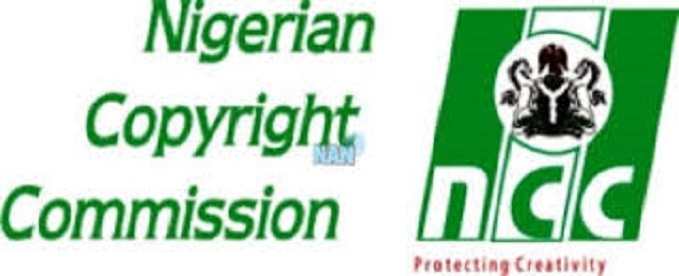E-Business
Why Many Web Projects Fail, Prepare for 2014

Vibe Web Solutions Limited said that after years of working with various clients, it often wondered why some of the projects have failed even beyond launching and why so many of the clients have to return after their Web Projects fail.
Meanwhile, about 75% of businesses come from projects where someone else could not get the job done. The most common situation is what the Company called the “Money Pit – No Clear Vision and Purpose”.
This informed the article on: the most common reasons why so many web projects fail, especially in 2013, even as companies and individuals get ready for 2014.
Jumping the Gun:
Lack of a clear definition of the scope and requirements: Everyone is so anxious to get going and they think they know where they are going. But they don’t think about how it’s going to work and what happens under different scenarios.
This is especially true when a company puts their business online. How will this new process affect your business?
Most clients think they know what they want, but the devil is in the details. I can’t tell you how many clients we meet with that when pressed to detail their process, haven’t thought through all of the ramifications.
Make sure you go through a detailed planning exercise before you start building. Make sure building something that your customers want and need, not just what you want. Get input from customers.
Do not want to pay for the service rendered:
This kind of approach as 100% fail rate. If the client approach business this way then he will frustrate the web developer from rendering high standard service and in return get disappointed. In most cases they end up spending more than they want.
The “Facebook Syndrome” Biting off more than you can chew.
Be careful not to bite off more than you can chew. Rome wasn’t built in a day. If you have a really complex project, do it in phases. You don’t have to publish it all on the web at once. There is nothing wrong with replacing your existing website after three or four phases are completed.
Putting the Design First:
Designing without purpose or function. We have seen some absolutely beautiful designs for new projects that just cannot be built or would be too expensive to build. It’s best to wireframe out all of the functionality taking into account the platform you’re using before the design is done. Then have your development team work with the designer, so together they come up with something that is beautiful and functional. Otherwise you could come up with a Frankenstein site that is neither.
Getting Off Track: Scope Creep:
This happens a lot. A good PM’s main job is to keep things on track. It’s natural as you go through the development, to come up with new ideas and things you want. You need to realize that every time you make a change, it adds to the time and cost of your project. Changes late within the process have large affects. If a website is built and tested, you will have to retest after the change. Some changes are beneficial, especially if they make the website better for your users. But lots of indecision and changing can derail a project. Scope Creep happens when decision makers aren’t involved early on or the project didn’t go through proper planning.
No Functionality Testing:
Lack of cohesive Quality Assurance. It’s important to unit test each piece of functionality and then do regression testing on the final product. All projects have bugs, so it’s better to have the developers find the problems instead of your users. We usually set aside 20% to 25% of the development time to perform proper QA. Make sure there is a comprehensive QA Plan, otherwise you could get a website that has a lot of issues. Developers need to be thinking about quality from day one and be responsible to fix their problems. Otherwise it could get very sloppy.
Building a successful web project requires all of these areas to be properly addressed. Failure to perform any of these tasks could derail a project which ends up being completely wasted money in the budget. When you select a developer make sure they can address all of these before you start. Properly done projects can be a tremendous asset to the wellbeing of your company.
E-Business
Q1 2025 .ng Domain Name Statistics Reflect Nigeria’s Advancing Digital Landscape

The Nigeria Internet Registration Association (NiRA) presents its report on .ng domain name registration and renewal statistics for the first quarter of 2025, highlighting the continued expansion of Nigeria’s digital footprint. The data underscores a consistent and significant adoption of the nation’s Country Code Top-Level Domain (ccTLD), reinforcing its pivotal role in the burgeoning Nigerian digital economy.

During the period spanning January to March 2025, a total of 40,791 .ng domain names were recorded. This figure comprises 22,236 new registrations and 18,555 renewals, indicating a healthy balance between the acquisition of new digital identities and the sustained commitment of existing domain name holders to their online presence.
Analysis of the registration trends within the quarter reveals a notable upward trajectory, with a 13.92% increase in domain name registrations observed between February and March 2025.
This growth signifies an increasing recognition of the importance of a localized online identity by a diverse range of stakeholders, including individuals, startups, Small and Medium-sized Enterprises (SMEs), and larger organizations.
Notably, the .com.ng extension continues to be the dominant choice, accounting for over 60% of both new registrations and renewals. This reaffirms its status as the preferred domain name extension for Nigerian businesses seeking to establish a credible and locally relevant online brand presence while maintaining global accessibility. The sustained popularity of .com.ng underscores its perceived value among Nigerian entrepreneurs and enterprises seeking to secure their digital real estate.
This upward trajectory isn’t happening by chance. The Nigeria Internet Registration Association (NiRA) has remained intentional in its drive for digital inclusion and domain adoption. Through public education, training via the .ng Academy, outreach campaigns, and partnerships with stakeholders across the tech ecosystem, NiRA has consistently advocated for the importance of owning a local domain. The current standing of .ng as the second most registered ccTLD in Africa reflects the efficacy of these efforts.
Digital adoption in Nigeria is no longer just about being online—it’s about owning your digital identity. And with a .ng domain, Nigerians are better positioned to assert that identity, connect with local and international audiences, and gain better control over their digital footprints.
As we look toward the rest of 2025, the Q1 results serve as a strong signal: more people are embracing the digital future, and the .ng domain is increasingly becoming their first step.
E-Business
NIMC Launches NINAuth Digital Identity Verification App for Govt Services

National Identity Management Commission (NIMC) of Nigeria has launched a new digital identity verification tool called the NIN Authentication (NINAuth) application.

The initiative, which forms part of President Bola Tinubu’s Renewed Hope Agenda, aims to strengthen the country’s national digital identity management framework.
The launch builds upon Nigeria’s comprehensive unified digital identity system that has been transforming access to financial services and government programs.
The NINAuth application introduces several key features focused on data security and privacy.
The platform requires explicit user consent before sharing identity information for Know Your Customer (KYC) processes, giving individuals greater control over their personal data.
The system provides seamless access to various government services, including SIM card registration, immigration applications, passport processing, tax filings, and financial transactions.
The development follows significant investment in Nigeria’s digital identity infrastructure, including a $45.5 million support from the World Bank as part of the Digital Identification for Development (ID4D) project.
As the official service for integration with NIMC’s backend infrastructure, NINAuth enables secure verification processes across ministries, departments, and agencies (MDAs).
The application is available for download on both the Google Play Store and Apple iOS App Store for users of the National Identification Number (NIN).
The rollout represents a significant milestone in Nigeria’s ongoing efforts to digitize government services and strengthen identity verification processes.
“NINAuth is a cutting-edge suite of services including web, API, and mobile verification designed to enhance data security, protect privacy, and simplify access to government services,” said Dr. Kayode Adegoke, Head of Corporate Communications at NIMC.
“The platform introduces a robust layer of protection, empowering individuals with greater control over their personal information.”
The implementation supports the objectives of the recently established Nigeria Digital Identification for Development Project Ecosystem Steering Committee, which oversees the country’s digital identity initiatives.
President Bola Ahmed Tinubu has approved the launch of the NINAuth app and directed its use for verification and authentication across all MDAs.
The application provides a secure single sign-on solution for accessing government services and social protection programs while maintaining strict data privacy controls.
The centralized approach to digital identity management represents a significant step forward in Nigeria’s digital transformation journey and its commitment to modernizing government services.
E-Business
NCC to Checkmate $3Bn Digital Piracy Market

Nigerian Copyright Commission (NCC) has set in motion a machinery to checkmate the booming copyright piracy market in the country.

Copyright piracy is said to cost Nigeria an annual loss estimated at billions of naira.
Despite the absence of a coordinated or official statistics to gauge the quantum of loss, John Asein, director general, NCC, said as far back as 2019, Nigeria lost N918 trillion ($3 billion) annually to digital piracy.
The financial damages severely impact local businesses and innovation efforts.
The commission, in collaboration with the World Intellectual Property Organisation (WIPO), has started a project to develop strategies and tools to address the menace.
Speaking at a stakeholders’ meeting on the WIPO project to address online copyright piracy in Nigeria, Asein said digital technologies have unlocked tremendous opportunities for the creative and innovation sectors.
The NCC boss said technology also poses serious challenges, including online piracy, which he said is growing rapidly.
He said: “Pirate sites continue to emerge rapidly, with statistics indicating a 6.7 per cent increase in user visits. A significant percentage of these users are students aged between 18 and 24, with social media and messaging platforms becoming major gateways for accessing pirated content.”
He added: “No industry is immune. The most affected sectors include television (43.6 per cent), publishing (27.5 per cent), film (12.9 per cent), music (7.0 per cent), and software (6.2 per cent).
“Far beyond mere statistics, the victims are no longer only foreign right owners. Many Nigerians in these sectors have also been bruised and their creative enterprises ruined.”

 Broadcasting2 days ago
Broadcasting2 days ago5 Things You Absolutely Need to Know About BBNaija Season 10

 E-Financial2 days ago
E-Financial2 days agoW’Bank Says Cash Transfer Missed Millions of Needy Nigerians

 Telecom2 days ago
Telecom2 days agoNigerians May Pay More for Calls, Data as Senate Okays 5 Percent Excise Duty

 E-Business2 days ago
E-Business2 days agoNCC to Checkmate $3Bn Digital Piracy Market

 General News2 days ago
General News2 days agoEFCC Tells Nigerians to Shun Ponzi Schemes Like CBEX, Others

 E-Business2 days ago
E-Business2 days agoNIMC Launches NINAuth Digital Identity Verification App for Govt Services

 Telecom2 days ago
Telecom2 days agoMastercard Report Reveals Top Travel Trends Shaping Africa in 2025

 E-Financial2 days ago
E-Financial2 days agoCBN, NIBSS Unveil BVN Platform for Diaspora Nigerians
























